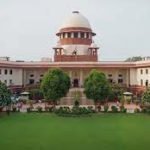This case revolves around the appeal of a deceased convict’s widow challenging her husband’s conviction in a bribery case related to passport processing.
The deceased, Mohanachandran N.K., worked as a lower division clerk in the Passport Office, Thiruvananthapuram. He was accused of demanding a bribe from an applicant (referred to as PW1).
PW1 required an urgent passport and contacted the accused. The accused initially asked for Rs.1,000 as the passport fee and other necessary documents. Over and above this lawful amount, the accused allegedly demanded an additional Rs.500 for expedited processing. The total amount to be paid was Rs.1,200, which included Rs.1,000 for the passport fee and Rs.200 as gratification.
A complaint was filed with the Central Bureau of Investigation (CBI). A trap was laid on June 16, 2003, at the accused’s residence, where currency notes totaling Rs.1,200 were handed over to him, leading to his apprehension and the collection of his hand wash.
Law Involved
The accused was convicted under Sections 7, 13(1)(d) read with 13(2) of the Prevention of Corruption Act, 1988.
Judicial Reasoning: The Doubtful Demand
Initial Conviction:
The Trial Court convicted the accused, finding that the complaint and delivery of “tainted money” were proven. The High Court dismissed the subsequent appeal, upholding the conviction.
Defense’s Stance:
The defense highlighted that PW1, the original complainant, did not support the prosecution case regarding the demand for a bribe during the trial.
The accused stated in his defense (under Section 313 CRPC) that PW1 approached him through an advocate for help with obtaining a passport. He claimed PW1 came to his house with the prescribed fee of Rs.1,000 and necessary documents.
The defense argued that the accused was unaware of the extra amount beyond the passport fee, specifically the two Rs.500 denomination notes, believing them to be Rs.100 notes, making him unaware of the extra Rs.200.
It was contended that if the demand for a bribe was not proven, the recovery of Rs.1,000 (the lawful passport fee) itself was not incriminating.
Supreme Court’s Scrutiny:
The Supreme Court noted that while a demand for a bribe can sometimes be proven even if the original complainant turns hostile, in this case, there was no “cogent proof of demand”.
The Court emphasized that the prosecution failed to provide evidence that the money accepted included unlawful charges or that the accused counted the money.
Crucially, the Court found the accused’s explanation of the “incriminating circumstances” to be “plausible and appropriately explains the incriminating circumstances”. The accused admitted Rs.1,200 was paid, with Rs.1,000 for the passport fee, and asserted that “Rs.200 was not bribe money”.
The defense’s argument that the accused was unaware of the extra Rs.200, believing he was only receiving the lawful Rs.1,000, was found to be a “plausible explanation”.
Given the lack of cogent proof for the demand and the plausible defense, the Court determined it was a “fit case where benefit of doubt had to be given to the accused”.
Holding: Acquitted Due to Doubt
The appeal was allowed. The judgments and orders of the High Court and the Trial Court were set aside. The accused was acquitted of all charges.
MINI V. CBI/SPE COCHIN
Supreme Court: 2025 INSC 980 (DoJ 13-08-2025)






